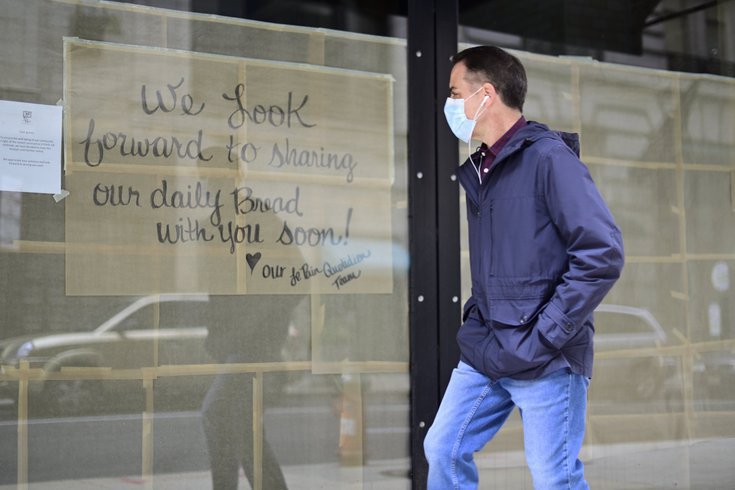
November 26, 2020
 BASTIAAN SLABBERS/PhillyVoice
BASTIAAN SLABBERS/PhillyVoice
As COVID-19 cases rise across the state, Pennsylvania residents have been difficult to reach for contact tracing that helps limit the spread of the virus.
Too many COVID-19 positive Pennsylvanians are refusing to cooperate with case investigators doing contact tracing or quarantine themselves, making it difficult to contain the virus, according to a health official.
Of the more than 34,000 people who tested positive for Coronavirus over the past week, only a quarter of them answered case investigator's calls, Michael Huff, the state's director of case investigations and contact tracing, told the Pittsburgh Post Gazette.
"Why? Because people don't want to answer the phone," he said to the PPG. "And because people do not realize how important it is to give the information we need to make certain we can control the disease."
Cases across the country are spreading fast. The New York Times reported 178,242 new positive cases on Nov. 25 across the United States — up 38% from the past two weeks. On Wednesday, 2,292 COVID-19 related deaths were reported in the United States, making it the highest single-day COVID-19 death rate since June,
The Centers for Disease Control and Prevention released new protocols for investigators earlier this week to reach people who test positive and isolate close contacts to limit the spread of the virus.
"Prompt isolation of people diagnosed with COVID-19, and identification and quarantine of close contacts, can effectively interrupt disease transmission and reduce spread of SARS CoV-2," according to the CDC. "When implemented quickly, contact tracing, along with other community mitigation efforts work together to reduce transmission."
The CDC recommends cases that tested positive within the past 6 days should be prioritized for contact tracing in order to reach close contacts sooner — focusing on household contacts and those living or working in dense, high transmission populations.
"People testing positive for or diagnosed with COVID-19 (cases) within the past 6 days should be given the highest priority for a case investigation interview," according to the CDC. "This makes it more likely that their contacts will be reached within this 6-day time period."
Health officials should move to investigate positive cases diagnosed within the last 14 days after those high priority cases, the CDC said. If more than 14 days has passed, no contact tracing should be pursued, barring any "unique circumstances."
Huff said many of those talked to didn't truly understand the severity of COVID-19, or even how it could be spread, until those conversations. He said many people didn't understand that visiting a family member when sick could transmit the virus to them.
A smaller number, around 96, of the 8,300 who answered these calls refused to quarantine, Huff said.
"This is a challenge," Huff said to PPG. "A challenge to all states across the country."
In Pennsylvania, 6,956 cases were reported Nov. 25, with a 7-day average of 6,587 cases, according to The New York Times.
Allegheny County announced that for the first time, a child with an unidentified, underlying medical condition in the county died from COVID-19 last week. Globally, child COVID-19 deaths have been rare.
In Philadelphia, cases averaged to 765 cases per day for the week ending Nov. 21, down from the 888 average daily cases per day from the week before. Though cases are down, Health Commissioner Dr. Thomas Farley said cases are still very high.
"There is some leveling trend here," Farley said. "The leveling trend could just be a pause before we see another increase. It could be the beginning of a reversal. There's no way of telling right now, but even so, the number of daily cases we're seeing is still extremely high. We're seeing the consequences of that."
Health officials urged residents to limit their holiday plans to limit the spread of the virus through the state. Gov. Tom Wolf and Secretary of Health Dr. Rachel Levine announced stronger restrictions Monday, including a ban of alcohol sales at bars and restaurants on Thanksgiving Eve, and a stronger mask mandate.
Follow Hannah & PhillyVoice on Twitter: @hannah_kanik | @thePhillyVoice
Like us on Facebook: PhillyVoice
Add Hannah's RSS feed to your feed reader
Have a news tip? Let us know.